Last updated: 5 August 2019
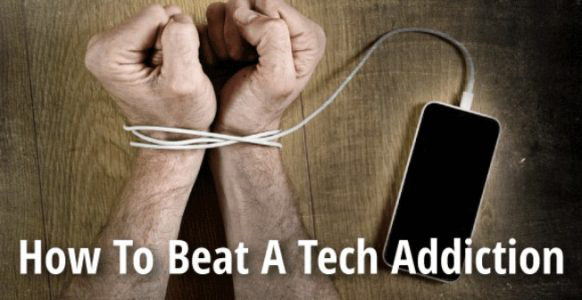
A mother says to her teenage son: How was school today?
The boy replies: It’s on my Instagram.
We say this as a joke, but there is a big element of truth here. Technology is now used in ways that regular, face-to-face contact has almost become unnecessary.
Aside from the obvious reason this is alarming, there is also another issue. With so many people using technology for everything from communicating with teams, to arranging one night stands, tech addiction is also on the rise.
In his book The Hunt for Red October, author Tom Clancy points out that computers are useful tools. They only become a problem when you let them do your thinking for you.
The big plus about technology is that it’s meant to give you freedom and improve communication, so you can get more work done and have more time to do the things that matter.
But it hasn’t quite worked out that way. Now, in some cases, technology seems to be the thing that matters… during breakfast, lunch, commuting, waiting, meeting friends, dinner, watching TV and every other waking moment. Look around you, and the urban world is filled with smartphone zombies…
It’s hard to get through the day without checking your social media updates every 5 minutes.
Instead of giving you freedom, it’s actually made you a slave to your device(s).
And according to essayist Nassim Nicholas Taleb:
The only difference between technology and slavery is that “slaves are fully aware that they are not free.”
Technology Use Has Become An Addiction
The statistics are confusing, depending on where you look, but they nevertheless paint a pretty bleak picture overall.
A UK report for the BBC states that people pick up their phones at least every 12 minutes. Of those surveyed, 71% said they never turn off their phone, while 78% said they couldn’t live without it.
One recent study claims that Americans are constantly checking their phones. The word “constantly” is a bit vague, but it seems to tie in roughly with the 12 minutes mentioned above.
And in a study by Qualtrics and Accel, it’s claimed that people check their phones up to 150 times a day. That’s even more than once every 12 minutes.
But why is there such an incessant need to do that?
Are people unable to do without their phone because it improves the quality of their life? Or are they simply addicted to the technology?
Reliance on technology to such an extent is a relatively new phenomenon. But already it has its own label in the mental health field, namely Internet Addiction Disorder or IAD.
That tells you that health professionals are taking it seriously. But it also tells you that it must be a fairly large problem if there’s already a diagnosis for it.
It’s never been easier to access the web and social media sites from wherever you happen to be. And since you probably carry a phone or tablet everywhere you go, it’s not surprising that you use it as often as you do.
But what is it that drives you to do it?
I Get A Kick Out Of You: The Biological Reason For Your Tech Addiction
It transpires that there’s a biological reason for tech addiction.
You see, emails, text messages, and social media posts trigger the release of dopamine in your brain.
Dopamine is the neurotransmitter that rewards you for achieving something.
So when someone responds to one of your online remarks or comments, your brain sends out more dopamine giving you a tiny reward. And who doesn’t like rewards? It makes you feel validated and seen.
If just using your phone – which you’re probably going to do anyway – can give you a little boost, then it makes sense that you’d want to do it as often as possible.
Technology addiction expert, Dr. David Greenfield, refers to smartphones as:
“The world’s smallest slot machine.”
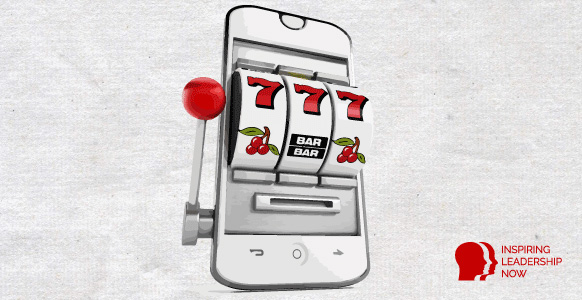
Just like gambling, you keep doing it because you keep getting rewarded.
But there’s another side to technology, too.
Because as well as the positive aspect to social media, there’s an equally powerful negative aspect. You might call it antisocial media.
That’s when someone writes something hurtful, stalks you online, or makes your life a misery in other internet-related ways.
And then you still might be glued to your phone, because even negative attention is still attention.
These things might seem obvious. But what are some of the less obvious problems that can arise due to technology addiction?
How Tech Addiction Can Affect Your Everyday Life
For all its benefits, technology comes with its own set of specific problems. Some of the commons signs of a tech addiction include:
- Being constantly distracted – think of the mother wheeling a pushchair down the street while her eyes are glued to her phone, or the man placing his items on the conveyor belt at the supermarket checkout while simultaneously texting. Or the friends sitting in a cafe “catching up”… but who are constantly peering down at their phones while talking. Or maybe even yourself – when you’re working, does your phone sit next to you on your desk? Does it always have your attention… even when other things may require your full attention?
- Unable to engage – like the boy who told his mother to read his Instagram, people are finding it easier to engage with each other online rather than face-to-face. While this might have its good points, for example, if there’s an ocean in between two people – it also means that when engagement is necessary and you need to communicate using real language on the fly, such as during a job interview, you might not have the experience or tools to deal with it. Or on an even more intimate level, you might find communicating in relationships when more challenging because it seems foreign to engage on such a deeper, real level.
- Unable to be in the present moment – think of the parent checking their email while their offspring is trying to get their attention. “Mommy look at the picture I made for you.” If your attention is constantly focused on the little gizmo in your hand, instead of the world around you, then chances are you’re going to miss out on a lot of stuff. And you can’t get that back.
- Lack of quality sleep – do you check your phone just before going to sleep? Or keep your phone on your bedside table, just in case an “important” message comes through. And do you check your phone if you get up in the middle of the night to use the bathroom? Or when you can’t sleep? Or if you wake up a little earlier than expected? Worrying about missing something makes it harder to sleep peacefully, as does the blue light that phones emit.
You might not think that you’re addicted to your device, but here’s something to consider. Various studies suggest that tech addiction can lead to an assortment of mental health problems, such as:
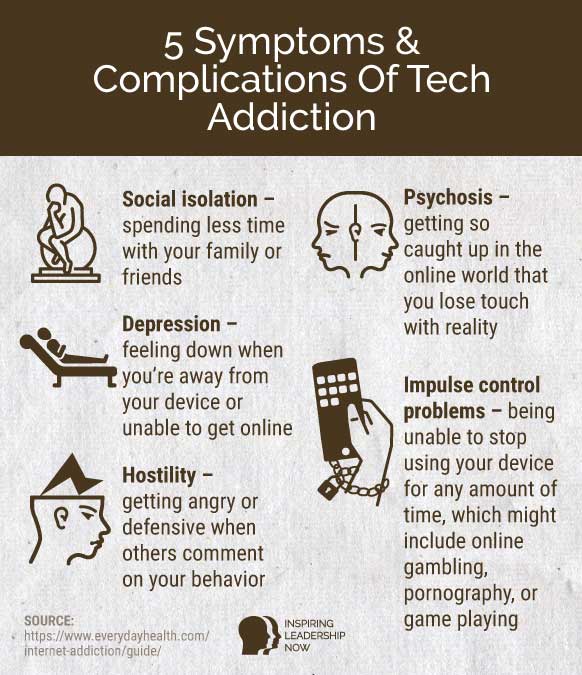
It can also create feelings of anxiety as you constantly look to your device for external validation.
It can affect your performance at school or work as you find yourself unable to focus on the tasks at hand. And wanting to spend time online might mean that you no longer have an interest in sports, hobbies or other activities that once occupied you and stimulated your mind.
7 Tips & Techniques To Help Curb A Technology Dependence
If you feel you have an unhealthy dependence on technology because it’s interfering with how you communicate, work, concentrate and engage with others, try some of the tips and techniques below.
1. Make the most of your free time
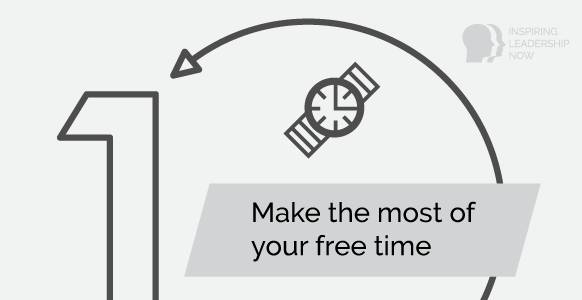
Got nothing to do? Rather than automatically picking up your phone, find something to fill your time. Here are a few ideas:
- Go for a walk (without your phone)
- Do some goal setting
- Meditate
- Make a list of 5 things you’re grateful for
- Do something kind for a stranger, like buy someone’s else coffee when ordering yours or give a genuine compliment to someone
- Help someone… volunteer, visit your parents and help them fix an issue in their house, cook for someone who might be sick or do their grocery shopping
- Exercise!
- Meet up with a friend and tell them what you appreciate about their friendship
- Attend a Meetup or networking event to make some new, inspiring connections
- Get into nature
- Journal
- Write a letter of appreciation to someone important in your life
- Think of someone who inspires you, and ask yourself why
- Name your 5 top attributes… and challenge yourself to recognize another 5 ways you rock the following day, and then the day after that. Make a game of it and boost your self-esteem in the meantime.
- Consider how you could be a better person, and set yourself the challenge to act upon it
- Do absolutely nothing… and give yourself a few guilt-free minutes to just rest and recalibrate WITHOUT any stimulation
… the list is endless, really. Yep, there really was life before technology!
2. Use your phone to help you stop using your phone
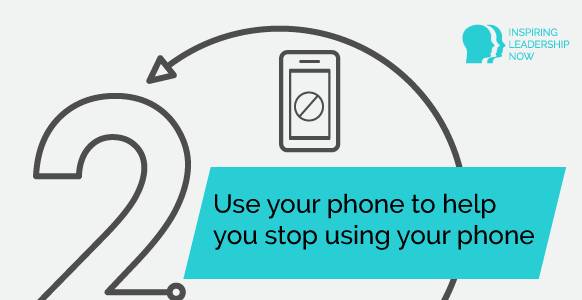
There are lots of apps designed to help you limit your phone and internet use. You can set them up so they tell you when you’re going over a pre-set time limit. Or you can put a time-lock on it so you’re locked out for a specific time. Or you can block distractions such as games or reminders that you can easily live without.
One cool app to help you do this is called Moment.
This app is designed to help you get back to living in the moment and stop your phone or device stealing your time from you.
According to the Moment website, the app helps you to “use your phone in a healthy way so that you can be present for the parts of life that matter most.” It does that by:
- Helping you understand exactly how you use your phone
- Setting usage goals that fit with your lifestyle
- Disconnecting at specific times
The app supplies you with short exercises you can put to use throughout the day. The Moment Coach gives you simple strategies that will allow you to get back precious time every day, meaning you’ll be able to spend more time with friends and family, doing the things that matter the most.
3. Turn it off at bedtime or set your phone to “airplane” mode
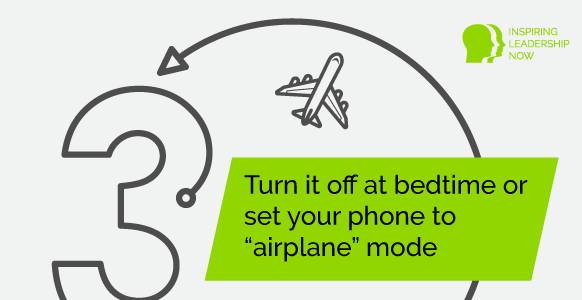
If your phone is on, beeps, buzzes and blue light omissions can keep you up, or wake you up. Try turning your devices off when you go to sleep. If anything really important happens, you’ll find out about it in the morning.
Or, if you need to keep your phone on because you use it as an alarm, set it to airplane mode and don’t turn this functionality off until you’re ready to face the day. Give yourself some time in the morning to connect with yourself and do whatever puts you in an optimal state of mind – such as meditation, reading a book, exercise, yoga or even just having a leisurely, nutritious breakfast.
4. Take small steps to make coping easier
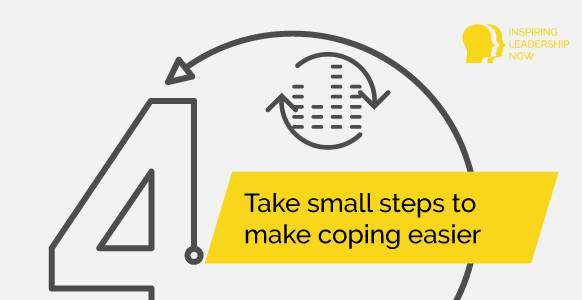
It’s easy to say “switch off your phone” – but not so easy to do. One way around it is to set yourself a target that you can stick to.
For instance, you might take a 15-minute walk and force yourself to leave your phone at home. Once you get used to it, you can stretch it out to 20 minutes, half an hour, and so on. The secret is to do something small at first and gradually build up to a limit you’re comfortable with.
5. Disable any unnecessary notifications and do an app “clean up”
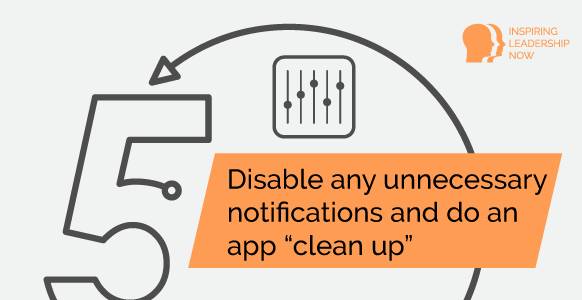
As well as being the world’s smallest slot machine, your phone is part of a multi-billion-dollar industry where virtually everyone on the planet is vying for your attention. But all those marketing messages are not necessarily going to be important.
And in terms of your social media notifications, do you really need to know how someone on the other side of the world is feeling at 2am? Probably not. If it doesn’t make a significant impact on your real life, then it’s a notification you can do without.
In addition to turning off your notifications, consider taking it one step further by deleting the apps that end up being the biggest black holes and don’t contribute anything to your well-being or productivity. For example, the F bomb. Yep, Facebook.
Do you really need to scroll your newsfeed when you’re bored and have a few minutes? Does it make you feel good? Do you really need to see that your ex has a fabulous new life and partner? Or do really care who has a new job/baby/dog/couch/car/breakdown/toothbrush – or any of the other stuff that’s filling up your newsfeed?
Think about it. Is it REALLY making you happy? Or does it make you feel anxious, cause you to make comparisons, become judgemental, feel jealous, depressed or even unsuccessful?
We’d like to hedge a bet… all the time you spend looking at everyone else could be spent achieving your own goals and doing things that make you happier, wouldn’t you agree? Just sayin’.
And just a reminder… most people only put their “best stuff” up on social media. What you see isn’t usually an accurate depiction of someone’s life. Maybe everyone else looks like they’re doing better than you, but they’re probably also looking at your profile comparing themselves unfavorably if you take two exotic holidays a year and share these pics everything!
6. Prioritize your time
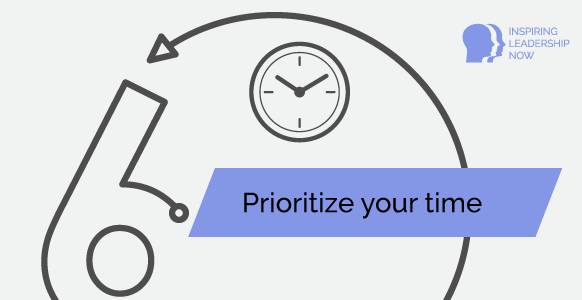
Are you getting emails and texts in the early hours of the morning? Again, you can use your phone to stop this from happening.
You can set up email labels that filter out messages so that you can answer them at a later date, or you can disable notifications during those moments when you simply want to be left alone.
And, if you use Slack for work, consider removing this app from your personal phone. Yes, it’s a brilliant app, especially for remote working, but if you’re getting constant notifications – especially if your team works in multiple timezone, consider removing it from your phone, or turning off notifications when you finish for the day.
>> RELATED READ: Ever struggle to set healthy boundaries at work? You might enjoy this – The People Pleaser’s Guide To Saying “No!” – How To Set Boundaries At Work That Gain Respect… Without The Guilt!”
7. Get some fresh air

Remember the saying that a change is as good as a rest? With access to the internet literally at your fingertips, it’s easy to forget there’s a big wide world out there. No matter what you’re doing during the day, make sure you give yourself a technology-free break every so often.
Get out of the house, or the office, and take a walk, or sit on a bench, and just enjoy not having to do anything in particular. It recharges your batteries so that you’ve got more energy to cope with the rest of day efficiently.
To wrap up: if you feel like you’re becoming increasingly dependant on your phone or technology, take action. Tech addiction is a real thing – don’t underestimate how it could be robbing you of the precious moments in your life. Not to mention your effectiveness and productivity at work. Try some of the simple suggestions in this article to claim back your health, happiness, time and even your freedom.

